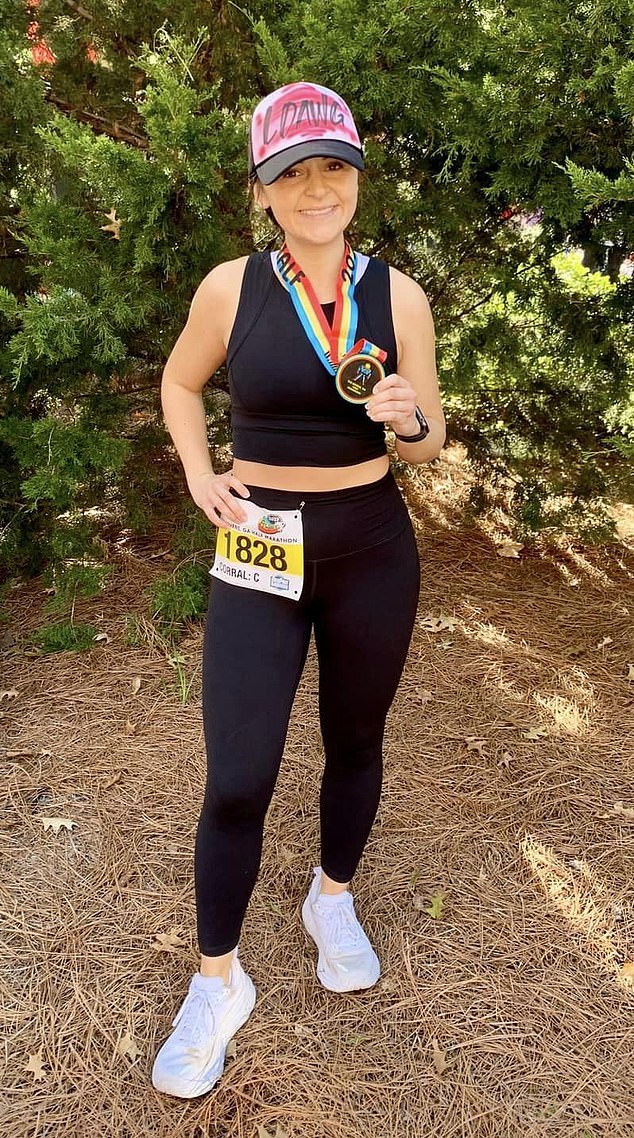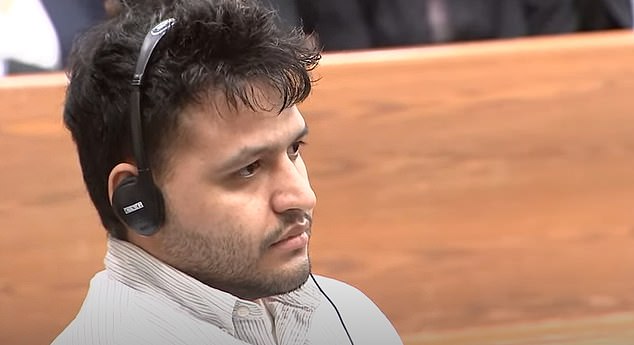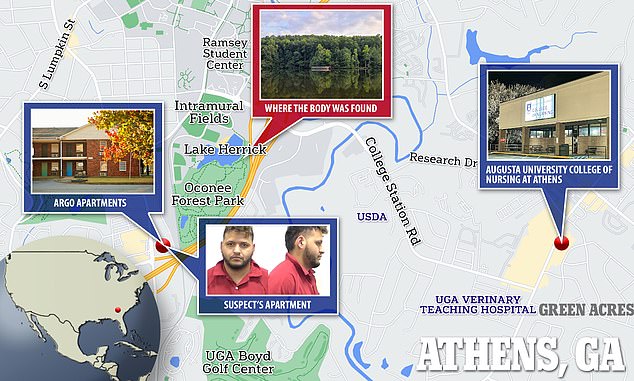Chilling new details in murder of Georgia student Laken Riley
Chilling new details have emerged about the murder of nursing student Laken Riley, as Georgia prosecutors prepare their case against the Venezuelan migrant accused of killing her.
Prosecutors said in court documents that Jose Ibarra, 26, was captured on multiple video cameras on Feb. 22 near a female dorm at the University of Georgia and near Milledge Avenue Extension — which leads to the jogging paths Riley, 22, was using that morning before she was killed.
They also claim that fingerprints found on Riley’s phone match Ibarra’s. This was reported by the Atlanta Journal-Constitution.
He was later found with scratches and other injuries, just one day after Riley’s body was found in a wooded area near the school’s playing fields. He looked like the man seen in a video of himself throwing off bloody gloves and a bloody jacket with long dark hair less than half an hour after Riley was killed.
However, Ibarra has pleaded not guilty to the young woman’s murder, aggravated assault, kidnapping and other crimes related to her death. His lawyers argue that much of the evidence against him is unreliable or was obtained illegally without probable cause.
Prosecutors have presented evidence against Venezuelan migrant Jose Ibarra, 26, who is accused of killing Georgia nursing student Laken Riley.

Riley, 22, was found dead near running tracks at the University of Georgia on February 22
They argue that officers had no reason to suspect Ibarra had committed a crime when they arrested him on Feb. 23. They are asking a judge to suppress evidence from two of his cellphones, his social media accounts, photos of his body and his DNA sample.
The attorneys also wrote in court documents that the fingerprint found on Riley’s cell phone “contained incomplete data and did not match any of the fingerprints belonging to [Ibarra] during the first comparison with his known prints.’
DNA evidence ‘does not rule out’ [Ibarra]”but also did not exclude any other known person involved in the case,” the attorneys argued, the Journal-Constitution reported.
They are also asking for the trial to be moved to a location outside Athens-Clarke County, because they say jurors there will not be impartial.
However, prosecutors have responded to the claims, saying the suspect was lawfully held on reasonable suspicion of involvement in Riley’s death and that the evidence against him was properly collected and should be presented to a grand jury in Athens-Clarke County.

Ibarra’s lawyers argue that much of the evidence against him is unreliable or was obtained unlawfully without probable cause.
The prosecution is also opposing Ibarra’s request to have the peeping charge dropped from the nine counts he faces in Riley’s murder.
Prosecutors say both incidents were part of Ibarra’s “single ongoing plan to attack women.” On February 22, they announced the suspect’s suspected whereabouts.
They said an unknown University of Georgia student called 911 just before 8 a.m. to report that someone had looked into her dorm room windows and was standing at her front door, just off Milledge Avenue Extension.
A few minutes later, university police arrived, but the perpetrator had already disappeared.
At 9:10 a.m., Riley, a nursing student at Augusta University College, called 911 from her cell phone from a location less than 1,000 feet from the dormitory.
“That 911 call — the last outgoing call from Laken Riley’s cell phone — was disconnected by Defendant Ibarra,” prosecutors allege.
“These incidents are linked by time, location, motive and evidence.”

According to prosecutors, Riley, a student at Augusta University College of Nursing, called 911 from her cellphone at 9:10 a.m.

About half an hour after the call, Riley’s mother’s texts and calls went unanswered.
The concerned mother then began a search and her housemates went looking for her on the running trails of the University of Georgia.
They called 911 to report the nursing student missing just after noon. About a half hour later, university police found her “lifeless, beaten and partially unclothed body” in the wooded area near the intramural fields.
Officers said the killing appeared to be a random attack and announced the next day that they were searching for a “Latino male” seen on video footage near the student’s dorm and near an apartment complex dumpster less than a mile from where Riley was killed.
An Athens-Clarke County Sheriff’s Office sergeant patrolling Ibarra’s apartment complex later saw “a Hispanic male in plain view, in broad daylight, walking through the apartment complex wearing the same hat seen in the trash can video,” prosecutors said.
The man in the hat identified himself as Diego Ibarra, Jose Ibarra’s older brother, and allegedly gave police a fake green card.
He then allegedly directed the officer to his apartment, where Jose and another brother, Argenis, were also located. The officer then called for backup.
Another officer who arrived at the scene saw that José had scratches and injuries, prosecutors said.

Ibarra was originally arrested on an outstanding warrant and is now accused of hitting Riley in the head, choking her and pulling up her clothing with the intent to rape her.
He was subsequently arrested on an outstanding warrant and his apartment was searched later that day.
Prosecutors say Ibarra punched Riley in the head, choked her and pulled up her clothes with the intention of raping her.
He is charged with first-degree murder, second-degree murder, kidnapping, aggravated assault, aggravated assault, obstructing an 911 call, tampering with evidence and peeping.
The hearing in the case is scheduled for October 11, and jury selection for the trial is set to begin on November 13.
